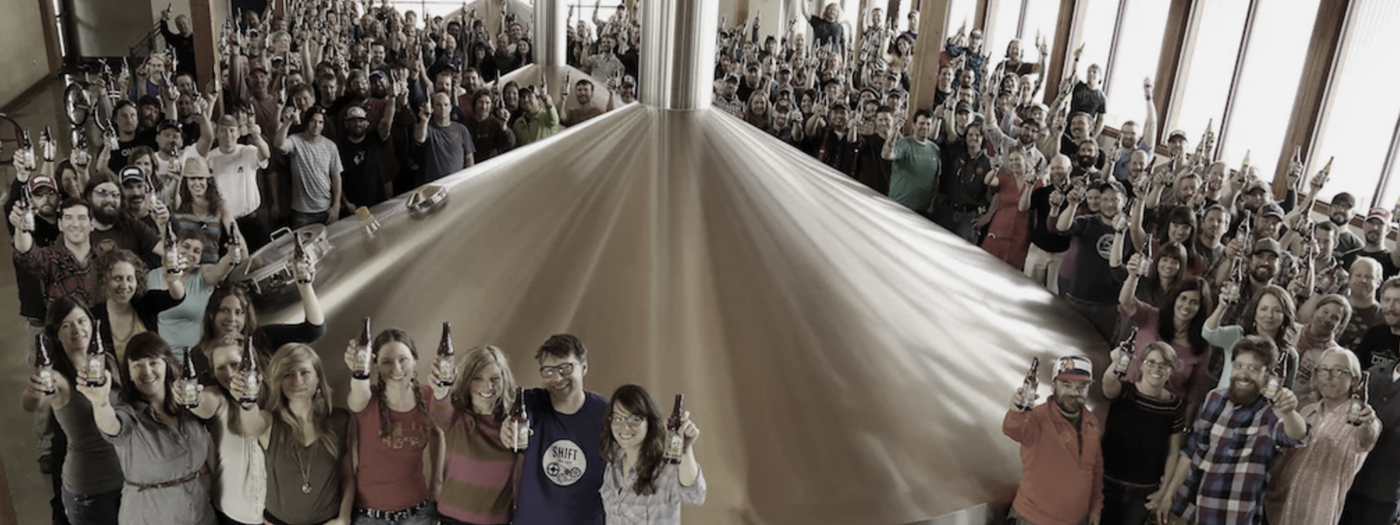The recent announcement of the planned sale of New Belgium Brewing has prompted some to worry about the future viability of employee ownership. After all, if this company — virtually the poster child for an employee ownership success story — is folding its tent, then how can any other employee-owned business make it?
To bowdlerize Mark Twain, rumors of the death of employee ownership are greatly exaggerated.
We shouldn’t read too much into the New Belgium sale, as the company was in a unique situation, and from my vantage point, this looks like a smart decision.
The fact is that craft brewing industry has become hyper-competitive — more than 6,000 craft brewers in the U.S. and counting. Moreover, customers in this market have a strong preference for local breweries. Every craft beer fan has at least a dozen craft brewers right in their local area. These two factors created headwinds for New Belgium that made it nearly impossible to grow.
Given those unique challenges, I think the ESOP trustees at New Belgium made the calculation that the company’s employee-owners might well be able to get better investment returns by investing in businesses other than New Belgium. We don’t know the price that they will receive for the sale, but according to public reporting, each employee-owner will be walking away with $100,000 at a minimum — many who have been employees for many years will see significantly more (non-employee-owned craft brewer Ballast Point was sold a couple of years ago for a price that equated to about $2 million per employee). When a sale of an employee-owned company leads to large payouts to the employees, I call it “declaring victory.” The goal of attaining economic security for those employee-owners has been achieved.
I think the ESOP trustees at New Belgium made the calculation that the company’s employee owners might well be able to get better investment returns by investing in businesses other than New Belgium.
New Belgium illustrates why I am not a fan of the “perpetual employee ownership trust.” Just imagine if sales continued to erode year after year as customers found other, more local brewers that they favored. If it were a perpetual trust, the employee-owners would see their investment values dwindling and be unable to preserve their value by selling the company. Sadly, we have seen that scenario play out at a small number of ESOP-owned firms that failed to sell when they had the opportunity.
So, does employee ownership have value? The people at New Belgium have enjoyed a phenomenal experience — all because the firm has been employee owned. By any measure it has been highly successful. We should continue to cite New Belgium as one of the many successful outcomes that can come out of employee ownership. Indeed, our ultimate goal will be to convert most companies to employee ownership; then, when an employee-owned company is sold, the buyer will likely be another employee-owned company! And that’s essentially the goal as I see it: changing the economy so that we preserve the creative dynamism of a free market economy while assuring that every person can participate equitably and successfully in that economy.
Martin Staubus is a senior consultant and former executive director of the Beyster Institute, part of the Rady School of Management at UC San Diego, where he advises business leaders on the design and operation of employee stock ownership programs to build stronger companies and provide liquidity to owners. Trained as an attorney, Staubus has 30 years of experience in as a consultant, Labor Department policy advisor, corporate executive, and corporate director. Past roles include service as Associate Director of the ESOP Association and as a director of the National Center for Employee Ownership.




















